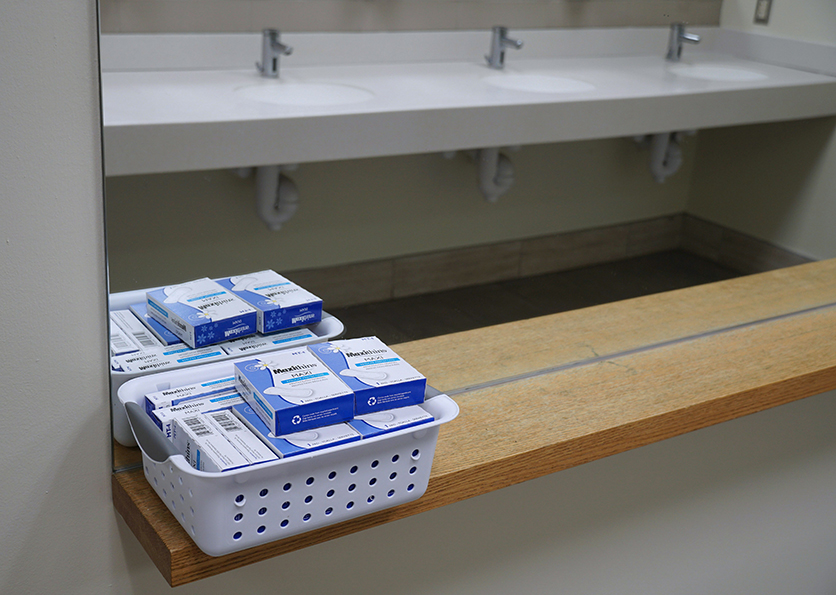Research Snapshot: Illinois’ Learn with Dignity Act Six Years Later

(Spiroview Inc./Adobe Stock)
By Andrew Nellis
October 7, 2024
Researchers found that implementation of a 2018 Illinois state law requiring schools to provide menstrual products in bathrooms has been challenging in some places for a variety of reasons, highlighting the need for more staff support and education to ensure optimal and effective access to menstrual products.
The study, led by Serena Shah, ’22 MPH, a graduate of Northwestern’s Master of Public Health program who now works as a senior associate in population health for Oak Street Health, found that inadequate education of policies to staff as well as structural and cultural barriers hindered student access to menstrual products.
The big picture
Having well-designed Menstrual Health and Hygiene (MHH) policies, protocols, and the resources to implement them is critical, for both students and staff, in ensuring menstrual products are consistently provided for all menstruating students. The need for access to menstrual products is especially dire for younger students, low-income students, and transgender, non-binary or gender non-conforming students.
In 2018, Illinois passed the Learn with Dignity Act (LWDA) requiring schools to provide menstrual products in bathrooms; however, the law’s implementation, until now, had not been studied.
How the study was done
The team conducted a mixed-method qualitative, community-based participatory research study by analyzing documents and interviews with CPS staff from October 2020 to September 2021 in partnership with the CPS Office of Student Health and Wellness (OSHW). The academic-community partnership began in 2017, co-led by Leah C Neubauer, EdD, MA, CPH, associate professor of preventive medicine, and Tarrah DeClemente, MPH, RDN, executive director of OSHW.
The details
The evaluation was designed and conducted using community-based participatory research principles. The multidisciplinary research team included implementing partners, local stakeholders, Northwestern students, and expert advisors. Additionally, the Northwestern research team and the CPS OSHW held biweekly meetings throughout the study to facilitate an ongoing partnership.
What’s next?
Further research should include student input on MHH needs and those findings incorporated into future MHH policies along with equitable allocation of funding for schools to consistently implement the policies.
Thoughts from the author.
“Strengthening MHH policies and policy implementations at every level is crucial for holistically supporting students by promoting health, well-being, and educational opportunities,” Shah said.